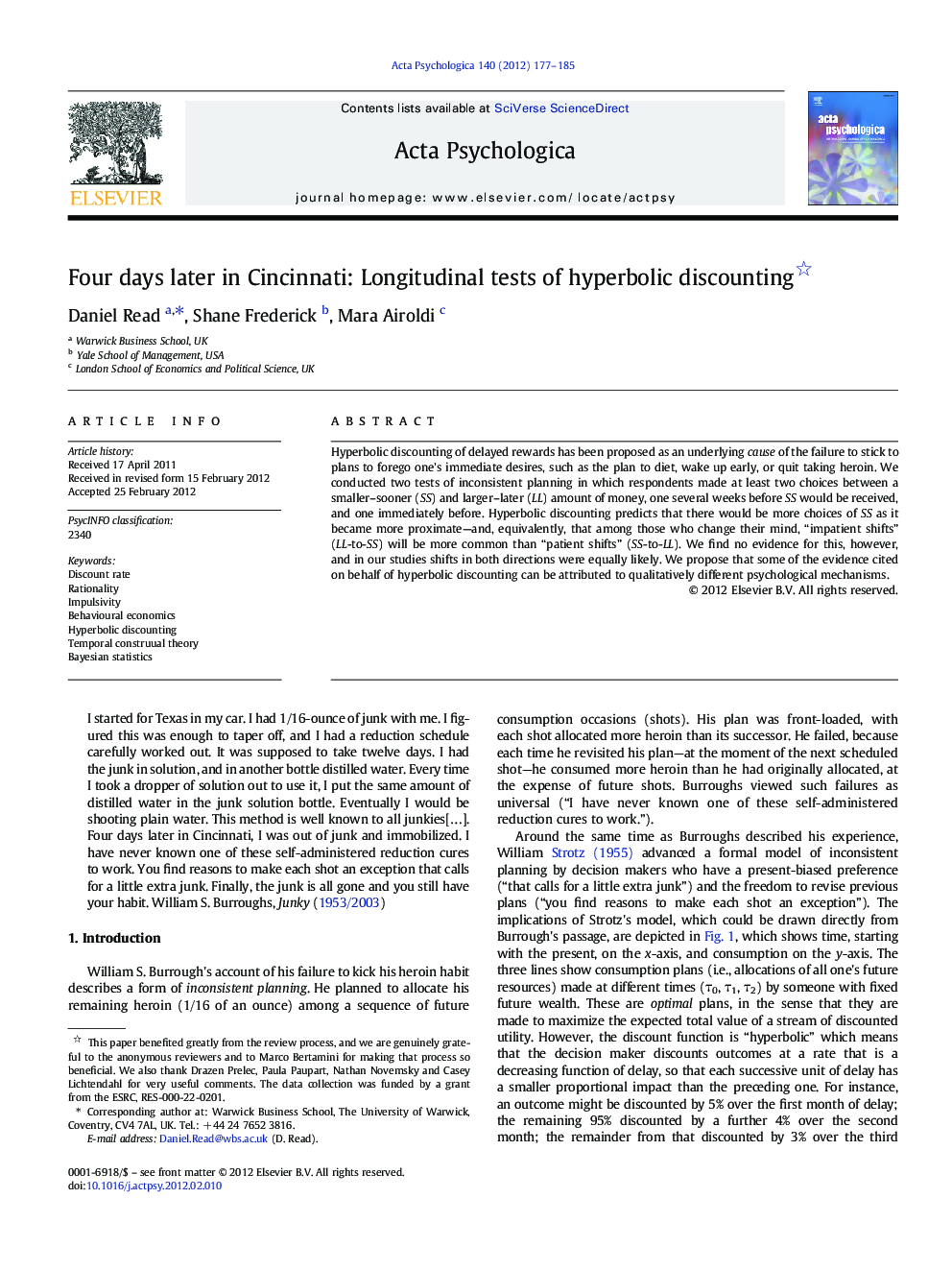| Article ID | Journal | Published Year | Pages | File Type |
|---|---|---|---|---|
| 920014 | Acta Psychologica | 2012 | 9 Pages |
Hyperbolic discounting of delayed rewards has been proposed as an underlying cause of the failure to stick to plans to forego one's immediate desires, such as the plan to diet, wake up early, or quit taking heroin. We conducted two tests of inconsistent planning in which respondents made at least two choices between a smaller–sooner (SS) and larger–later (LL) amount of money, one several weeks before SS would be received, and one immediately before. Hyperbolic discounting predicts that there would be more choices of SS as it became more proximate—and, equivalently, that among those who change their mind, “impatient shifts” (LL-to-SS) will be more common than “patient shifts” (SS-to-LL). We find no evidence for this, however, and in our studies shifts in both directions were equally likely. We propose that some of the evidence cited on behalf of hyperbolic discounting can be attributed to qualitatively different psychological mechanisms.
► We test for evidence of hyperbolic discounting. ► We adopt a longitudinal rather than cross-sectional design. ► The design rules out or minimises potential confounding factors shared by earlier studies. ► A Bayesian analysis reveals no evidence for hyperbolic discounting. ► We propose alternative explanations for the results of previous research.
